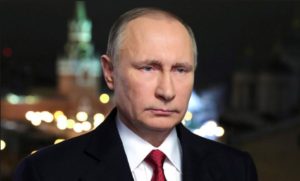Rising numbers of Russians seeking asylum
 Record number of Russians are seeking asylum in Europe and the United States as the Kremlin ramps up already tough policies on gay rights and political activism, according to Russia-watchers.
Record number of Russians are seeking asylum in Europe and the United States as the Kremlin ramps up already tough policies on gay rights and political activism, according to Russia-watchers.
Last year, 2,664 new Russian asylum applications were lodged in the United States – a 268-per cent increase since 2012, when President Vladimir Putin officially resumed power.
EU immigration data shows Germany alone saw 4,885 first-time applicants, about a third of the 12,600 Russians who sought sanctuary in Europe.
While neither US nor EU statistics reveal the specific reasons that individual applicants seek asylum, successful candidates must provide proof of an immediate threat to their well-being as a result of discrimination based on race, religion, sexual orientation or affiliation with particular social or political organisations.
Russian political analyst Dmitry Oreshkin says there has been a 40 per cent rise in Russian asylum-seekers since 2017, the highest since the earliest years of the post-Soviet era.
“Screws are tightening everywhere, citizens are already imprisoned for reposting on social networks,” Dr Oreshkin, a political scientist and fellow with the Washington-headquartered Wilson Center, told media.
“In Russia, very few people are completely safe, and those who feel threat for themselves are ‘different’ people — homosexuals or political activists,” he said.
“They are not subject to propaganda, they are not worried about what they are told on TV, they care about what is discussed in the narrow circle to which they belong.
“Therefore, the extreme anti-Americanism that has flourished in the country for several years doesn’t affect them. And if you leave, it’s better to go to the United States or Europe,” Dr Oreshkin said.
Supporters of anti-corruption campaigner Alexei Navalny, who was barred from the presidential ballot because of a conviction on financial crimes charges he contends were fabricated, were detained Friday ahead of Putin’s inauguration events.
Although restrictive Kremlin policies of 2018 aren’t formally inscribed as legal statutes, Dr Oreshkin said, they are distinctively implicit and nonetheless mandatory.
According to Lev Gudkov, of Russia’s only independent polling agency the Levada Center, Russia’s only independent national polling agency, it is not just asylum-seekers who are looking for a better life outside Russia.
“Even mature, white-collar professionals that privately feel an incompatibility with Putin’s political regime are leaving, however they choose to justify their decision because they care about their children, their professional interests or a more ecologically sound environment,” he said.
Putin has been accused by critics of overseeing a mounting crackdown on dissent – including against the political opposition and businesspeople not in step with the Kremlin – and fostering stigmatization of sexual minorities since he regained the presidency.
A flashpoint of criticism has been law signed by Putin in 2013, a year into his third term, that banned disseminating “propaganda of nontraditional sexual relations” to minors, and which has been widely denounced as discriminatory – an accusation the Kremlin rejects.
A study published by recently in Russia estimated that annually, about 100,000 Russians have left their homeland in recent years. Around 40 percent of those people have higher education, according to the study.
The researchers highly qualified Russians who moved to the West after 2010. A majority of the respondents said they left due to economic difficulties that snowballed in 2014, when flagging oil prices and Western sanctions over Russia’s expansionism in Ukraine battered the Russian economy.
A quarter of the respondents said they left due to the “political situation” in Russia, including “disappointment” after the 2012 election that brought Putin back to the Kremlin and the “events of 2014,” when Russia annexed Ukraine’s Crimean Peninsula and war between Kyiv’s forces and Russia-backed separatists erupted in eastern Ukraine.
Laurie Nowell
AMES Australia Senior Journalist












